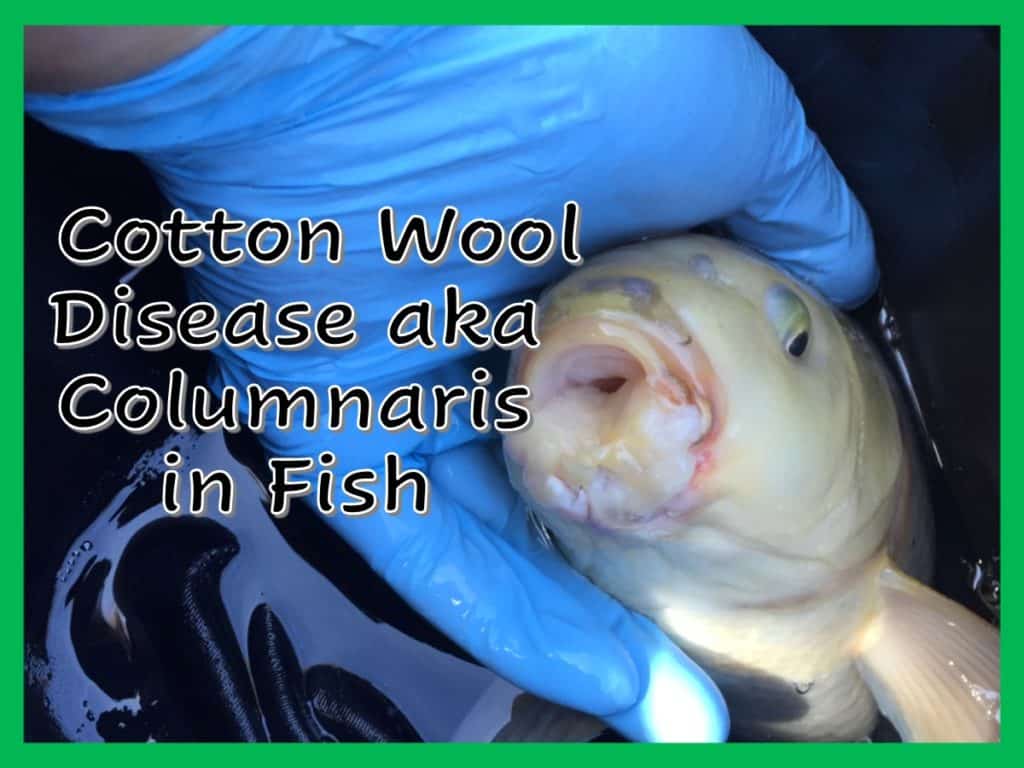No, it’s not a fungus, it’s a bacteria that looks like a fungus! This bacteria has confused hobbyists for years, wondering why anti-fungal treatments don’t work on what is actually a bacterial infection. Columnaris in fish is a common problem that has an easy and straightforward solution.
What is “Columnaris?”
Columnaris, formally known as Flavobacterium columnare, is a bacteria that is often found in the normal bacteria living on a fish. This common bacteria is found all over the world and can potentially infect thousands of fish species. Also known as cotton wool disease or cotton mouth, as these names suggest, the main clinical sign is what appears to be a fungus-like, cottony patch on your fish’s skin, fins or mouth. A microscopic exam is required to tell the difference between fungus and Columnaris.
Clinical signs include white, pale or greenish patches on the skin, fins and mouth. Severe infections can affect gill tissue and cause lethargic, loss of equilibrium and sudden death.
How did my fish get columnaris?
It is normal for this bacteria to be found in and on fish, so most infectious are caused by a stressful event deactivating your fish’s immune system, allowing this bacteria to replicate and spread. This stress could be related to water quality, transport, poor diet, or a myriad of other potential causes. Carefully review your fish system’s recent history to try and pinpoint what happened. This is critical in making sure it doesn’t happen again!
How do I fix my fish?
If you have not identified the initial source of stress, you will not successfully treat your fish. If you are able to remove the stressor and the infection is not too bad, your fish may not require additional treatment. Severe cases, including those that infect the gills, will require robust treatment with effective antibiotics. And OTC ones don’t qualify! Call your local fish veterinarian for quick and effective diagnosis and treatment.
How do I prevent my fish from getting columnaris?
Unfortunately, there is no safe method to sterilize a fish. As long as you practice safe quarantine and keep your system as low stress as possible, then most preventative measures go a long way in preventing your fish from getting sick.

